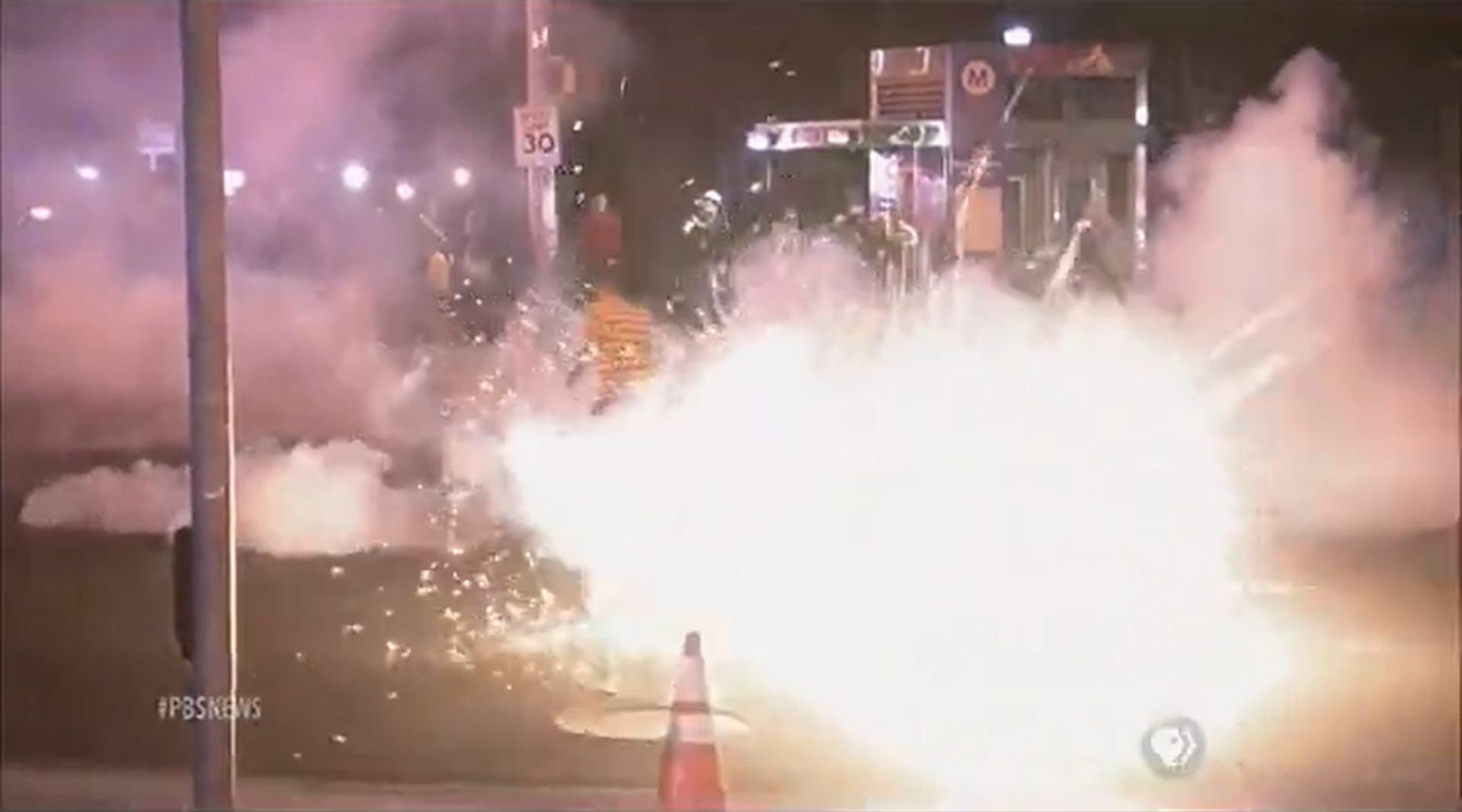After the Fire: NewsHour Coverage of Civil Unrest in America, 1991-2021
Baltimore
 |
In 2015, Freddie Gray, a 25-year-old Black man, died in Baltimore police custody from injuries sustained during his arrest and transport. The city erupted in peaceful and violent protests, sparking NewsHour coverage similar to their Ferguson reporting, with discussions of racism, policing, and community outrage continuing. Special correspondent Jackie Judd reported on the unfolding unrest following Freddie Gray’s funeral and analyzed the Baltimore Police Department’s relationship with the black community. Hari Sreenivasan resumed this analysis in A City in Crisis. He spoke with residents from the Sandtown and Bolton Hill neighborhoods, two districts with very different racial and economic makeups, to highlight the disparity in residents’ perceptions of the police. Sandtown resident Rev. John Willard, a priest from an Episcopal church in the neighborhood, described the justifiable anger directed at police, asserting, “The people in this community feel hunted. They’re afraid to make eye contact with people. They’re afraid to hand a friend a cigarette because they’re afraid they’re going to get arrested because they’re selling cigarettes.” Andrew Parlock, a white resident of Bolton Hill reflected, “I’m gonna call the cops the first chance I have if something goes down, compared to less than a mile [away], my same zip code, 21217. Same zip code but they’re not gonna call at all, and that’s something we need to deal with, and if we didn’t know it on Saturday, we know it today. And I think that’s the good news, the silver lining to this cloud.” Unlike with the Ferguson protests, the NewsHour also covered the economic ramifications of the riots and the role poverty played in the Baltimore protests. Sreenivasan reported on food deserts and gang violence in Baltimore, and Gwen Ifill interviewed Nathaniel Hendren, who discussed Harvard’s Equality of Opportunity Project analysis of poor communities in Baltimore. Looking for solutions to these issues of policing and economic inequality, Ifill also interviewed South Carolina Senator Tim Scott, who emphasized the importance of local government in resolving the root causes of the unrest, stating, “As it related to the federal government taking over local law enforcement issues, I don’t think that we should. I don’t think that we can and I don’t think that we will, but having a role to play in making sure that we use the positions that we have to bring peace and transparency throughout the nation is very, very necessary.”
